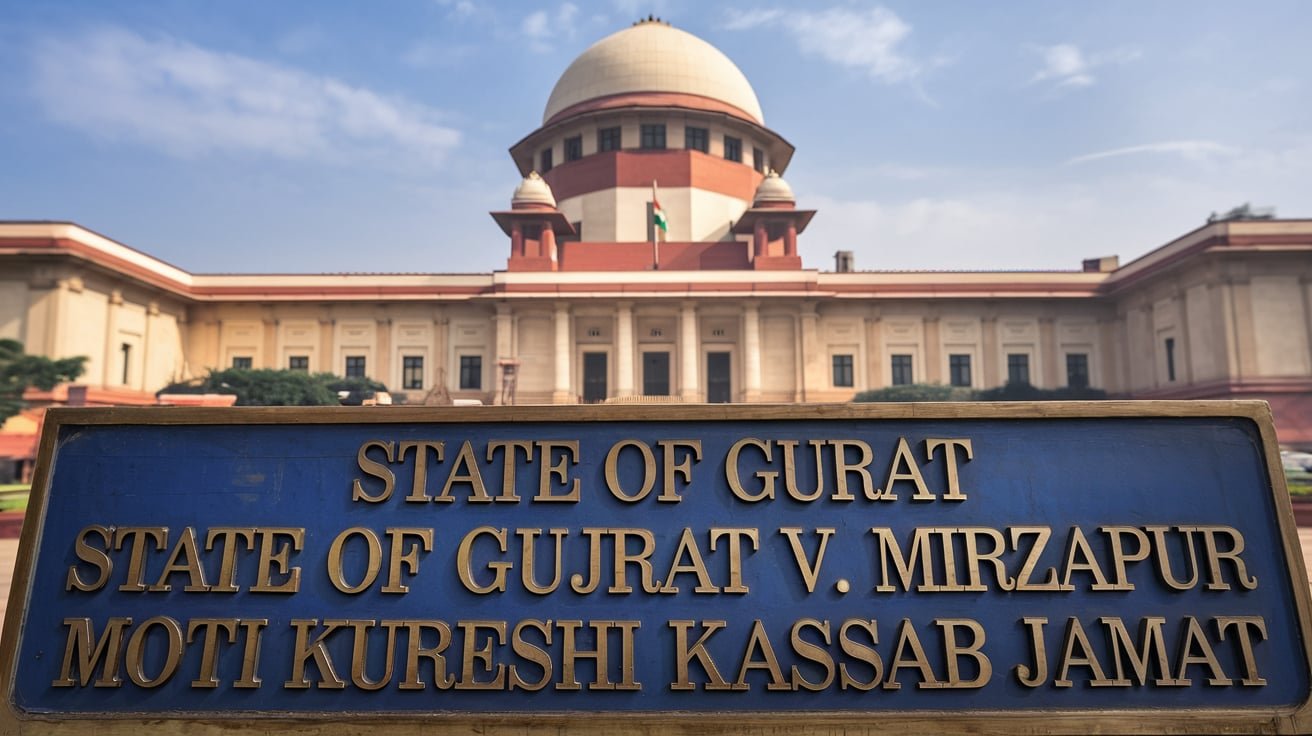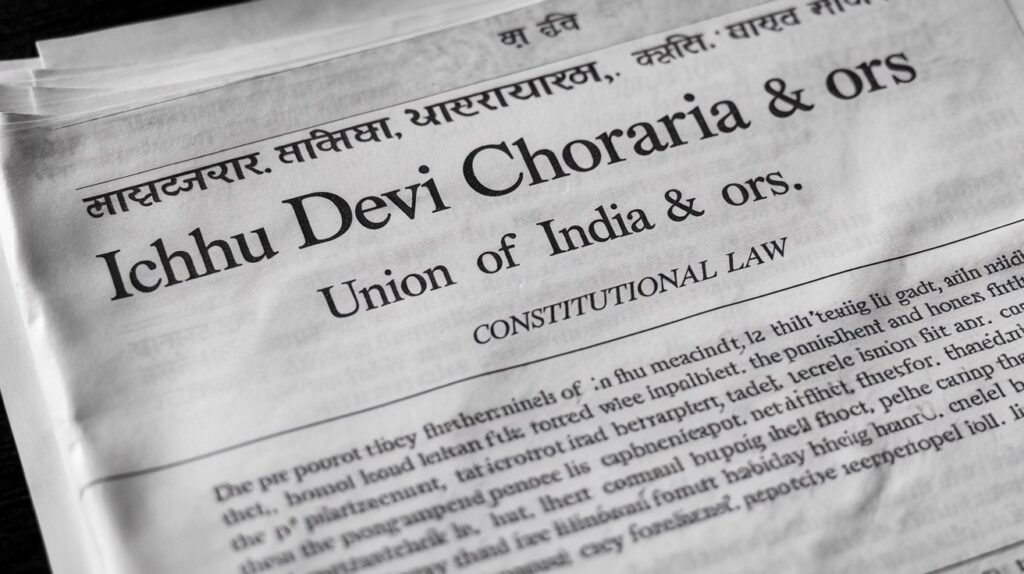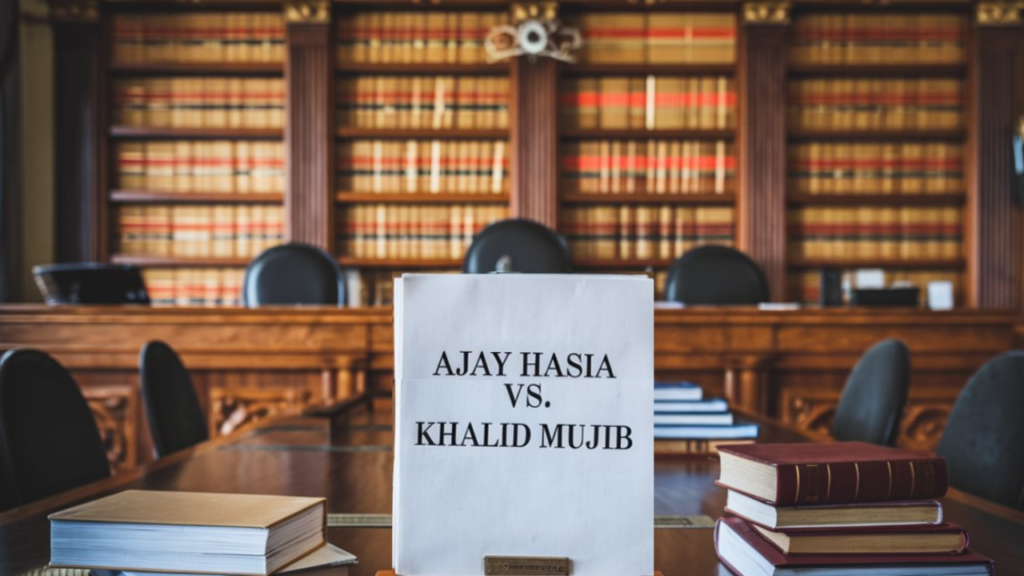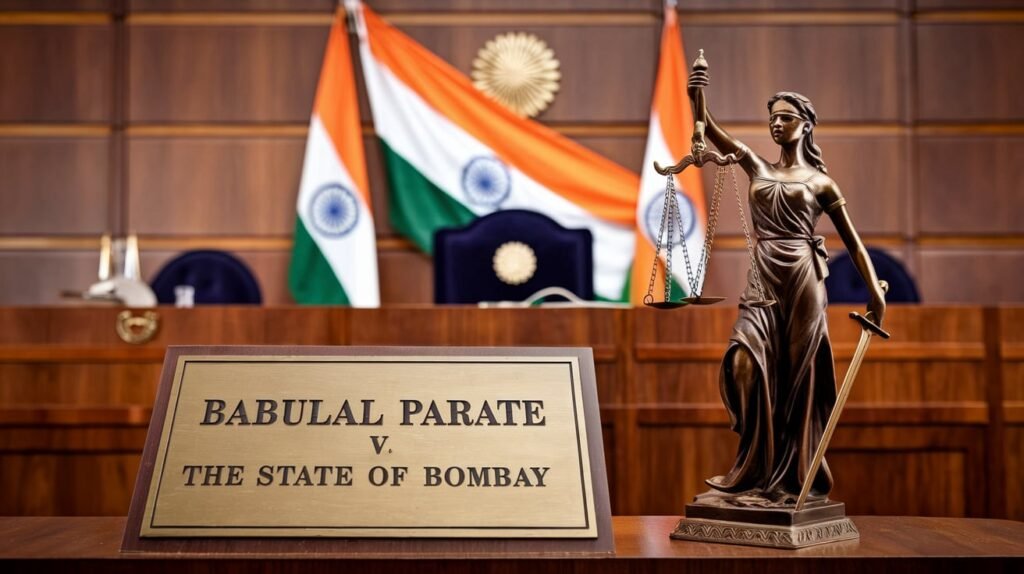State of Gujarat V. Mirzapur Moti Kureshi Kassab Jamat 2005 SCC 53 (Case Summary)

In this Landmark case, the Supreme Court of India adjudicated the constitutional validity of the Bombay Animal Preservation (Gujarat Amendment) Act, 1994, balancing individual rights under Articles 19(1)(g) and 21 with the broader public welfare objectives embedded in Articles 48 and 51A(g).
Table of Contents
ToggleFacts of State of Gujarat v Mirzapur Moti Kureshi Kassab Jamat
- The Gujarat Legislature passed the Bombay Animal Preservation (Gujarat Amendment) Act, 1994 (Gujarat Act No. 4 of 1994).
- The amendment imposed a total ban on the slaughter of cows and their progeny, including bulls and bullocks, by removing the earlier provision that permitted slaughter of bulls and bullocks over 16 years of age.
- Butchers, including the Kureshi community, challenged the amendment, filing writ petition under Article 226 in the Gujarat High Court. They argued that the ban violated their fundamental rights under Articles 19(1)(g) and 21.
Issues framed
- Whether the complete ban on the slaughter of cow progeny, including bulls and bullocks of all ages, violates the butchers’ fundamental rights under Article 19(1)(g) of the Constitution?
Judgment of State of Gujarat v Mirzapur Moti Kureshi Kassab Jamat
Subordinate Court Judgment
The High Court allowed the writ petitions and struck down the impugned legislation as ultra vires to the Constitution.
Judgment of the Present Case
The Court primarily analyzed Articles 19(1)(g) and 19(6) of the Constitution to determine whether the total ban on cattle slaughter constituted a reasonable restriction on the petitioners’ right to trade. Additionally, it referred to Article 48 and Article 51A(g).
The Supreme Court applied Article 19(1)(g), which guarantees the right to practice any trade or profession, to assess the constitutional validity of the total ban on cow progeny slaughter imposed by the Gujarat Amendment. The Court clarified that such a ban could qualify as a restriction under Article 19(6) if it serves legitimate public welfare objectives and passes the reasonableness test. It emphasized that fundamental rights are not absolute and must sometimes yield to public interest; thus, the ban, while comprehensive, did not eliminate the butchers’ trade entirely since other animals remained available for slaughter. Evaluating economic, agricultural, and public welfare concerns, the Court concluded that the benefits of preserving cow progeny for agriculture, organic farming, and biogas production outweighed the burdens on butchers, rendering the prohibition proportionate. The judgment relied on Directive Principles, particularly Article 48, which directs the State to promote animal husbandry and prohibit cow slaughter, as well as Article 51A(g), which mandates compassion toward animals. Further, by referring to precedents like Mohd. Hanif Qureshi v. State of Bihar, 1958), the Court highlighted the necessity of a case-specific analysis, asserting that reasonable restrictions must be justified within the context of public interest, thereby balancing individual rights with societal welfare.
The Supreme Court’s majority judgment upheld the Bombay Animal Preservation (Gujarat Amendment) Act, 1994, ruling that the total ban on cow progeny slaughter was a reasonable restriction in line with public policy objectives under Articles 48 and 51A(g). The judgment reflects the Court’s effort to balance individual rights with societal welfare by acknowledging the importance of agriculture, animal preservation, and public sentiment. However, the dissent by Justice Mathur highlighted the economic burdens imposed on certain communities and cautioned against using public policy objectives to disproportionately restrict fundamental rights.





